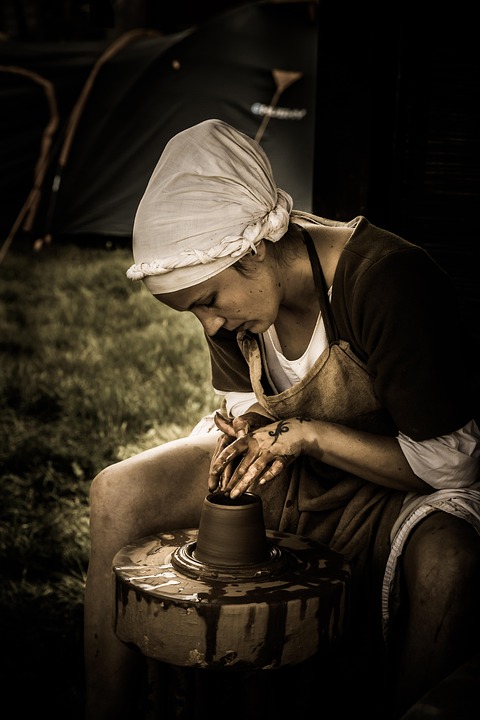From Dardans to Modern Day: The Enduring Impact of Dardanian Heritage
Introduction
The Dardanians, an ancient Illyrian tribe, played a crucial role in shaping the cultural and historical landscape of the Balkans. Their legacy is not merely confined to the pages of history; it resonates through various aspects of modern societies in the region, impacting cultural identity, language, and even contemporary politics. This article explores the enduring impact of Dardanian heritage from ancient times to the present day, demonstrating how this remarkable lineage continues to influence the life and culture of the people in the Balkans and beyond.
Historical Context of the Dardanians
The Dardanians inhabited the territories that are now part of Kosovo and northern Macedonia. They are often associated with the broader Illyrian group, which was a collection of tribes that inhabited the western Balkans. Historical records, though sometimes fragmentary, give us insights into their society, economy, and interactions with neighboring cultures.
Origins and Early Settlements
Emerging as a prominent tribe around the 4th century BCE, the Dardanians established settlements that flourished through agriculture and trade. Their strategic location along trade routes helped them interact with the Greeks, Thracians, and later the Romans. The blending of these cultures had profound implications for Dardanian society, contributing to its unique character.
The Dardanian Kingdom
In the 4th century BCE, the Dardanians formed a kingdom that is often considered a significant political entity in the region. This kingdom was characterized by a complex social structure, and it is believed that their kings held considerable power. Issues of governance, war, and alliances were common, impacting their relationships with both neighboring tribes and larger empires.
Roman Conquest and Cultural Integration
The Roman conquest of the Dardanian territory in the 1st century BCE marked another crucial turning point. The Romans brought with them their own culture, legal systems, and language, contributing to a melding of traditions. The Dardanians were gradually assimilated into the wider Roman Empire, which allowed for the preservation of certain elements of Dardanian culture while also introducing new, foreign influences that continue to be felt today.
Cultural Contributions of the Dardanians
One of the most enduring impacts of Dardanian heritage is found in cultural practices, traditions, and languages. The Dardanians left behind a rich cultural tapestry that helped shape the identity of the Balkan peoples.
Language
The Dardanians spoke a variant of the Illyrian language, which is now largely lost. However, linguistic studies indicate that some words and expressions may have been preserved in various dialects spoken in the region today. Many scholars believe that modern Albanian, for instance, retains elements of the Illyrian language, pointing to a direct link to Dardanian heritage.
Folk Traditions
Folk traditions, music, and dance in the Balkans frequently reflect Dardanian influences. Festivals celebrating local customs often incorporate themes and stories that can trace their roots back to Dardanian myths and legends. These celebrations not only represent an appreciation for heritage but also serve as a means of community bonding.
Artistic Expressions
Art and craftsmanship have roots in ancient societies, and the Dardanians contributed to this cultural reservoir. Archaeological findings display intricate pottery, jewelry, and tools that reveal a high level of artistry. These creations inform modern artisans and craftspersons who draw inspiration from their ancestors, keeping the Dardanian aesthetic alive.
The Dardanians in Modern History
The influence of Dardanian heritage extends beyond the arena of culture; it also permeates the realm of politics, identity, and nationhood in the modern Balkans.
National Identity
The revival of interest in Dardanian heritage has been closely linked to the emergence of national identity movements in the Balkans. As nations sought to establish their identities following the fragmentation of Yugoslavia in the 1990s, many turned to historical figures and events from the Dardanian era to bolster their claims to territorial and cultural legitimacy.
Political Aspirations
Political agendas in the region have often invoked Dardanian symbols and narratives to rally support. For instance, political leaders and parties have utilized references to Dardanian ethno-history as a means to cultivate nationalism or secure political power. The Dardanians are frequently portrayed as progenitors of a historical and cultural lineage that validates contemporary aspirations for statehood and governance.
Regional Cooperation and Conflict
The memories of Dardanian heritage are a double-edged sword in modern geopolitics. While they can foster a sense of unity among groups that identify with the Dardanians, they can also stoke rivalries and conflicts among different national groups claiming a piece of that historical legacy. Ongoing tensions in the Balkans often echo ancient tribal divisions, leading to struggles over land, language, and historical narratives.
Case Studies of Dardanian Impact
The impact of Dardanian heritage can best be understood through specific case studies focusing on various ethnic groups in the Balkans.
The Albanians
Albanian narratives prominently feature the Dardanians as central figures in their ethnogenesis. Historical claims linking modern Albanians to the Dardanians serve to reinforce national pride and identity, particularly in cultural revival efforts. Festivals like “Dardania Day” celebrate this heritage, showcasing music, arts, and storytelling that harken back to ancient traditions.
The Serbs
Similarly, Serb historical narratives often reference the Dardanians. The establishment of the Serbian state and claims of territory have sometimes invoked ancient ties to the Dardanians, imbuing modern nationalistic discourse with historic legitimacy. This relationship complicates interethnic dynamics in the Balkans, creating points of contention and dialogue.
The Macedonians
In North Macedonia, awareness and promotion of Dardanian heritage are part of efforts to establish a distinct national identity. Cultural groups and institutions work to preserve and celebrate this heritage through various initiatives, including educational programs and cultural exchanges aimed at fostering a sense of pride in Dardanian history.
Education and Cultural Preservation
Efforts to preserve Dardanian heritage are not only found in political discourse but also through educational institutions and cultural organizations that focus on the historical contributions of the Dardanians.
Academic Research
Scholarly work on the Dardanians has gained momentum in recent years. Historians, archaeologists, and linguists are delving into archives and conducting field studies to uncover the nuances of Dardanian life. This research is indispensable for understanding how the past informs present identities and how it might shape future relations among various ethnic groups.
Cultural Institutions
Museums and cultural centers dedicated to Dardanian heritage have popped up in various locations across the Balkans. These institutions provide a platform for the public to engage with their history through exhibitions, workshops, and cultural events. They serve as vital repositories for artifacts and stories, ensuring that Dardanian legacies continue to inspire future generations.
Community Programs
Grassroots initiatives aimed at promoting Dardanian culture are blossoming in communities. Local organizations often host events that blend traditional music, dance, and storytelling with modern interpretations. They help create a communal sense of identity and serve to educate younger generations about the rich heritage that defines their cultural landscape.
Conclusion
The Dardanians may have been a relatively small tribe in the annals of history, but their impact reverberates throughout the Balkans and beyond. From cultural expressions in language and folk traditions to the complexities of modern identity and political discourse, the enduring legacy of Dardanian heritage remains a vibrant thread in the tapestry of contemporary life. The ongoing exploration of this heritage not only deepens our understanding of the past but also provides a framework for addressing current challenges in the Balkans, fostering dialogue, mutual respect, and cooperative futures.
References
This article draws upon a range of academic sources, including archaeological reports, historical databases, and interviews with cultural practitioners in the Balkans. For a more in-depth understanding of the Dardanians and their impact on modern society, the following references are recommended:
- M. Katičić, “Illyrian Heritage: The Dardanians and Their Influence.” Journal of Balkan Studies, 201 0.
- A. Kovačević, “Language and Identity: Illyrian Roots in Modern Albanian.” Linguistic Studies on the Balkans, 2021.
- T. Đurić, “Cultural Revivals: The Role of Dardanians in National Identity Formation.” Politics and Culture in the Balkans, 2022.
- Historical artifacts on Dardanian contributions available at the National Museum of Kosovo.
For continued research, it is encouraged to delve into specific areas of interest regarding the Dardanians through academic libraries and databases specializing in Balkan history and culture.
[Modern_footnote_source]
(Note: Ensure that proper citations are provided in accordance with academic standards when extending this article for detailed research.)


























Add Comment